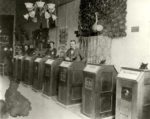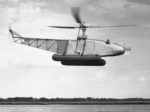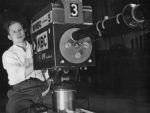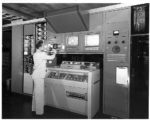Thomas Edison shoots Annie Oakley for the first peep show, the first successful VCR is released and Zoomar arrives. It all happened This Week in Tech History.
This week in 1894 – Thomas Edison showed off his new invention, the kinetoscope, when the first kinetoscope parlor opened in New York City. Several machines were placed in a row, and a customer could view the films in each for a total of 25 cents. These were often referred to as peep shows, since one peeped through a personal viewer to see the film. These first films were shot by Edison of Annie Oakley performing some of her celebrated feats of marksmanship. Kinetoscope parlors soon opened around the United States.
1941 – Igor Sikorsky accomplished the first successful helicopter lift-off from water near Stratford, CT, when he fitted utility floats, also called pontoons, to the Vought-Sikorsky VS-300. This made the VS-300 the first amphibious helicopter
1947 – The first practical camera zoom lens, named Zoomar, arrived. Before zoom lenses were available, some cameras had multiple lenses attached to a turret. The camera operator would rotate the turret to select the proper lens for the desired close up or wide angle shot. Eventually, the Zoomar lens would be scaled down for use by regular photographers and not just for television.
1956 – Ampex Corporation demonstrated their VRX-1000. This was the first commercially successful video tape recorder. These $50,000 VCRs were hand-built and too large to fit through a standard doorway. CBS was the first on-air user of the machine, to tape-delay the evening CBS News broadcast with Douglas Edwards.
And this week in 1971 – The Soviet Union Launched Salyut 1, the very first space station. Salyut 1 spent 175 days in orbit, before re-entering the Earth’s atmosphere and breaking apart over the Pacific Ocean. The Salyut program followed this launch with five more successful launches. The final module of the Salyut program became the core of the Russian segment of the International Space Station and remains in orbit to this day.






